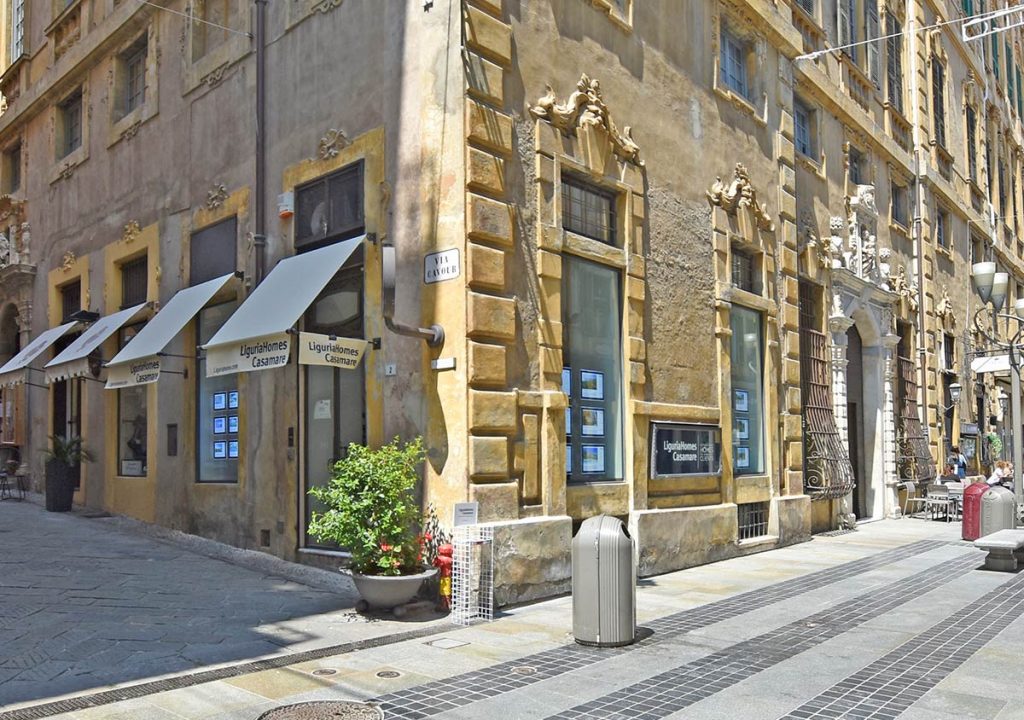Buying in Italy is similar to buying in the UK to the extent that there is an offer and acceptance procedure, which is usually followed by an exchange of contracts: the Preliminary Act (“Compromesso”) and the final deed (“Atto/Rogito Notarile”) in front of an Italian Notary. The deed is signed and the balance of the purchase monies handed over in exchange for the keys. The contract is subsequently recorded in a Public/Land registry.
Things to know:
– Most Italian properties are freehold.
– Under Italian Law, there is no penalty fee if you pay the entire mortgage amount, before the original end.
– In Italy, since 1989, the Estate Agent (“Agente immobiliare”) must be registered in the register of estate agents held at the Chamber of Commerce, after he has passed an hard Examination on every aspects about property purchase process. LiguriaHomes director, Matteo Scandolera, is also an Official Property Consultant of the Sanremo Court.
Under Italian Law a property has a Legal or Tax value (“Valore Catastale”); this is a value placed on a property by the Government and is generally considerably less than the commercial price of the property (approx from 30 to 50% of the commercial price). It is the figure on which taxes are calculated as reported in the Local Land Registry Office (“Catasto”).
A step-by-step guide
– The first step is formalising the Offer to the vendor, through the estate agent as an intermediary. The offer is then placed in writing and you will normally have to pay a deposit on the property (5,000 – 10,000 EUR). If the offer is accepted, this deposit paid is defined as “Caparra Confirmatoria” and in the event either party withdraws from the sale the other party has the right to force the sale, and/or collect damages and/or have back the deposit (if the seller is the breaching party it can be twice the deposit amount).
– Once the seller accepts the offer, the parties have a binding contract, which is then formalised with the execution of the Preliminary Act (“Compromesso”), a formal agreement according to which the parties undertake to buy and sell the property and agree on the terms and conditions of the sale. On signing the “Compromesso”, the buyer pays normally the 10% deposit (“Caparra Confirmatoria”) on the purchase price. It is an important stage and it is necessary for you to understand the details of the contract. That is the reason why we prefer to appoint an english spoken Notary, for ensuring that everything is clear and that you understand all the terms and conditions. At this stage you have to pay the Commission Fee (“Provvigione”) to the estate agent.
– The transfer of the property takes place with the execution of a deed of sale rogito in front of a Notary. The Notary (“Notaio”) is the only professional entitled to transfer legal title to properties in Italy. Although the notary is selected and paid by the buyer, he is an independent public officer/professional charged with the duty of drafting the Purchase Deed finalizing the sale, ensuring that title passes legally between the parties, verifying the necessary legal documentation and registration in the Local Land Register.
FEES & TAXES
– Registration tax/stamp duty is paid, in a simplified term, on the governments valuation of the property, the “Valore catastale”. If you are buying the property as a holiday home, stamp duty will be 10% of this government valuation. If however you wish to move to Italy and apply for residency (“Prima casa”) within 18 months of the closure, then the stamp duty becomes 3% (4% in case of new construction). It is paid at the time of the sale, to the Notary.
– Two property taxes are levied in Italy: a Council tax, called “ICI”, which is paid to the local Comune (between 0.4% – 0.7% on the tax value) whether you are a resident or non-resident; and IRPEF (Physical Person Income Tax), which is paid to the state. The main residence is not subject to Irpef. Non-residents must submit a tax return stating the details of their Italian property, even though there’s no tax to pay.
– Just for holiday homes, if the owner sells prior to 5 years incurs a charge of 20% Capital Gain on the gain between the buying price and the selling price.
POST-COMPLETION FORMALITIES
– Once the purchase has been completed in the Notary’ office, the foreign buyer will mainly be interested in obtaining a certified copy of the Purchase Deed, as duly lodged with the authorities by the Italian Notary appointed. A copy of the Purchase Deed (“Rogito”) is usually available for collection within 2 – 3 months from the date of completion. Liguria Homes will collect it for you.
– Formal notice should be given to the local police authorities (Questura) of the purchase, by using a form usually supplied by the Notary and delivered by the estate Agent.
– Finally, it will be necessary to arrange for new contracts (“Volturazione delle utenze”) with the main utilities (power, water, gas, telephone, etc.). Liguria Homes will do it for you.
– Where the property is in a block of flats, to inform the condominium manager (“Amministratore del condominio) of the transfer of the flat to the foreign buyer. Liguria homes will do it for you.
– Also, LiguriaHomes offers its rental division to rent out your property so you can obtain the best possible return on your investment, if you wish.


